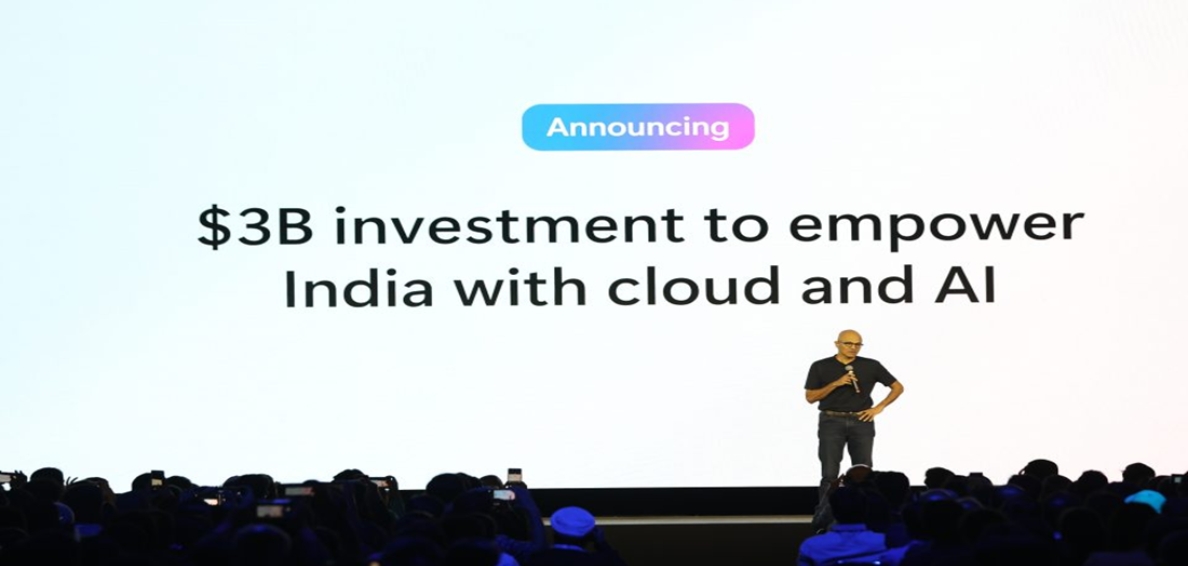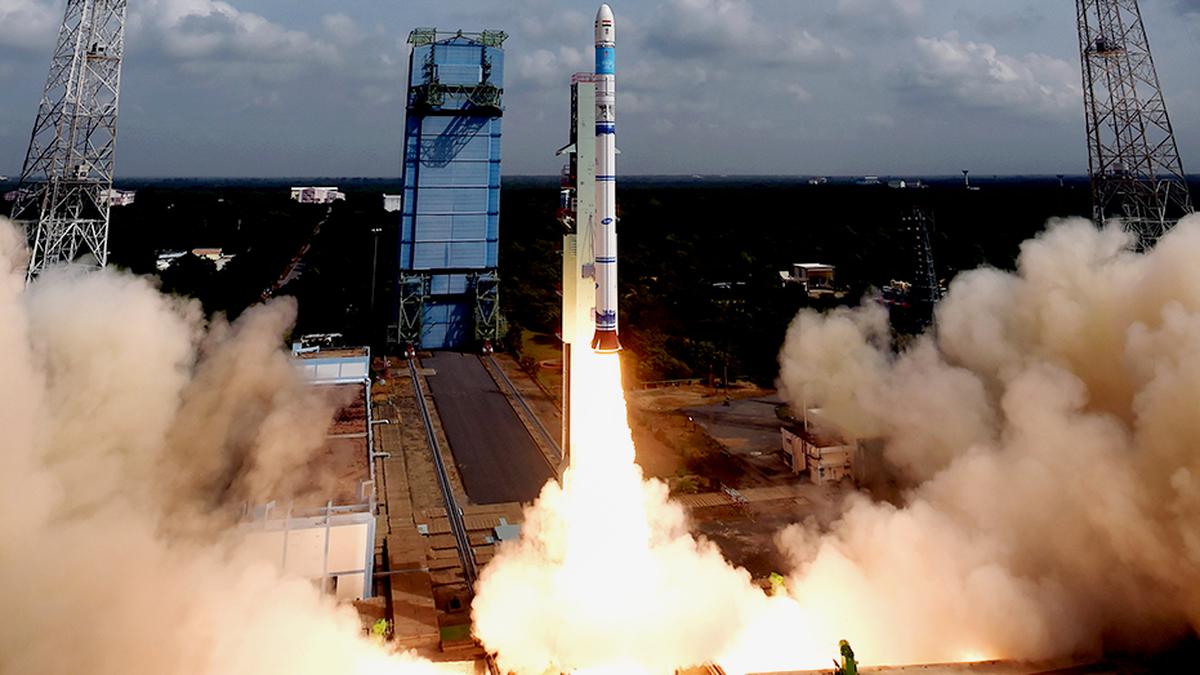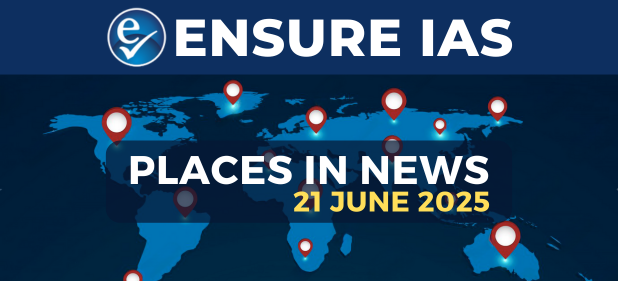- Courses
- GS Full Course 1 Year
- GS Full Course 2 Year
- GS Full Course 3 Year
- GS Full Course Till Selection
- Answer Alpha: Mains 2025 Mentorship
- MEP (Mains Enrichment Programme) Data, Facts
- Essay Target – 150+ Marks
- Online Program
- GS Recorded Course
- Polity
- Geography
- Economy
- Ancient, Medieval and Art & Culture AMAC
- Modern India, Post Independence & World History
- Environment
- Governance
- Science & Technology
- International Relations and Internal Security
- Disaster Management
- Ethics
- NCERT Current Affairs
- Indian Society and Social Issue
- NCERT- Science and Technology
- NCERT - Geography
- NCERT - Ancient History
- NCERT- World History
- NCERT Modern History
- CSAT
- 5 LAYERED ARJUNA Mentorship
- Public Administration Optional
- ABOUT US
- OUR TOPPERS
- TEST SERIES
- FREE STUDY MATERIAL
- VIDEOS
- CONTACT US
Microsoft's $3 Billion Investment in AI and Cloud Infrastructure in India
Microsoft's $3 Billion Investment in AI and Cloud Infrastructure in India

- In January 2025, Microsoft announced a major investment plan of $3 billion to boost artificial intelligence (AI) and cloud infrastructure in India over the next 2 years.
- This investment will focus on building scalable infrastructure and developing AI skills across the country.
- Microsoft plans to enhance its cloud services and strengthen AI capabilities, ensuring that India remains at the forefront of AI innovation globally.
What is AI (Artificial Intelligence)?AI is technology that enables machines to perform tasks that usually require human intelligence, like learning, problem-solving, and decision-making. It allows machines to think, understand, and act on information, much like humans do.
What is Cloud Infrastructure?Cloud infrastructure refers to the computing resources (like servers, storage, and networks) provided over the internet. Instead of owning physical machines, businesses can rent these resources from cloud providers like Amazon Web Services (AWS) or Microsoft Azure.
How AI and Cloud Work Together:
|
Key Aspects of the Investment Plan:
-
Investment in Cloud and AI Infrastructure:
- $3 billion will be allocated to expand cloud services and build AI infrastructure.
- Microsoft will establish new data centers across India to support the rapidly growing demands of AI and cloud services.
- The company already has 3 data center regions (Pune, Mumbai, and Chennai) in India and is planning to launch a fourth data center by 2026.
-
Focus on AI Skilling:
- Microsoft will train 10 million people in India over the next five years with AI skills.
- This initiative is aimed at empowering the workforce to be better equipped for the evolving job market, where AI will play a crucial role.
- AI will become an essential skill for professionals, and India is positioning itself as a leader in AI innovation, which could unlock new opportunities for people and organizations nationwide.
-
India as an AI Leader:
- Satya Nadella, Microsoft’s Chairman and CEO, said that India is becoming a global leader in AI innovation, helping to drive both economic growth and technological progress.
- Microsoft aims to make India AI-first, meaning the company intends to promote an AI-driven ecosystem that will benefit people across the nation, from individuals to startups and large enterprises.
-
AI Adoption in India:
- Microsoft highlighted that Indian professionals are already leading the way in AI skill-building, noting that Indian LinkedIn users spend nearly 50% more time on learning new skills than the global average.
- There has been a 122% increase in Indian professionals adding AI-related skills to their profiles, far outpacing the 71% global growth in AI skill adoption.
- This shows that India is embracing AI faster than many other countries.
-
Research and Collaboration:
- Microsoft Research (MSR) India will play a key role in accelerating AI research and the transition from theoretical knowledge to practical business solutions.
- The AI Innovation Network will promote new collaborations and partnerships to bring cutting-edge research to real-world applications.
- MSR India has already partnered with Physics Wallah, an edtech company, to collaborate on projects such as math reasoning and causal inference.
- MSR India is also involved in optimizing Indic Large Language Models (LLMs), prompt optimization, and reinforcement learning.
The Strategic Impact of Microsoft's Investment:
- By investing heavily in AI and cloud infrastructure, Microsoft aims to position India as a global hub for AI research and innovation.
- This will not only support startups but also larger organizations that are increasingly adopting AI in sectors such as healthcare, finance, e-commerce, and education.
- The development of scalable AI ecosystems will provide essential tools and platforms for Indian AI startups to thrive, enabling them to accelerate product development and reach new markets.
- By training 10 million people in AI skills, Microsoft is ensuring that the next generation of workers in India is well-equipped for jobs in the AI-powered economy.
- The focus on AI training is critical, as AI adoption in India continues to rise across industries, with sectors like automotive, fintech, e-commerce, and agriculture increasingly relying on AI for automation, decision-making, and data analytics.
-
Transforming Education:
- Microsoft’s partnership with Physics Wallah signifies a major push to bring AI-powered learning tools into the education sector.
- This collaboration will focus on enhancing math reasoning and improving AI’s application in curriculum design and personalized learning.
- The collaboration with Physics Wallah is just one example of how Microsoft's investments will fuel knowledge transfer between research institutions and practical, everyday applications.
Conclusion:
Microsoft’s $3 billion investment in AI and cloud infrastructure in India will have far-reaching effects on the country’s technological development. The investment aims to establish a strong AI ecosystem, expand cloud services, and train millions of people in AI skills over the next few years. Through its efforts, Microsoft is playing a pivotal role in helping India transition into an AI-first economy, setting the stage for long-term growth in sectors that rely heavily on artificial intelligence and cloud computing.
|
Also Read |
|
| NCERT Books For UPSC | |
| Best IAS Coaching in Delhi | |




